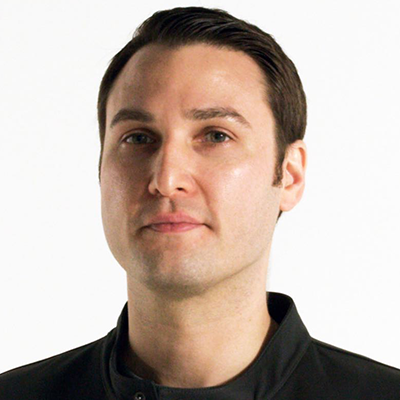On this episode of STO Unplugged, Frank is joined by Aaron Kaplan, co-CEO of blockchain securities firm Prometheum. Aaron shares his industry background, why he’s excited about digital securities, and explains Prometheum’s goals of becoming a full-service, SEC-regulated blockchain security ecosystem… [1:02]
Aaron and Frank also discuss the current regulatory environment… what it’s like to help a company raise funds and trade tokens… and Aaron gives his take on the future of digital securities…
Make sure to catch up on past episodes of STO Unplugged here.
STO Unplugged | 3
Bringing digital securities mainstream, one business at a time
Frank Curzio: How’s it going out there? Welcome to the STO Unplugged Podcast where I interview some of the biggest names is this incredible growth industry, including CEOs, executives, analysts, entrepreneurs. Have an awesome guest for you today. His name is Aaron Kaplan, who is the co-CEO of Prometheum. So Prometheum SEC and FINRA Regulated Market Infrastructure that will leverage the blockchain for issuance trading, clearing, settlement and custody. That’s the perfect definition. It’s on the website. What does that mean? Basically a full service blockchain security ecosystem. So going to have a digital security platform, it’s got to check all the boxes in terms of being KYC annual compliant when it comes to issuance, but also provides a secondary market trading. So in short they’re trying to make this a Wall Street type platform for digital assets, being able to have clearing, settlement of securities. Real big deal. I won’t get into it here. I’ll let Aaron get into it. You know what? Let’s get to that interview right now. Aaron Kaplan, thanks so much for joining us on STO Unplugged!
Aaron Kaplan: Hi Frank. Thanks for having me.
Frank Curzio: Well, I want to get right into it here because you have an amazing platform and I want to talk about it a little bit because for me and our company, we use Securitize and there’s other platforms coming out. Again, the more people that are coming out with great things for this industry, the better it is. So why don’t you talk a little bit about your platform and how it’s different from maybe everything else out there and this way we can get everyone on the same page.
Aaron Kaplan: Sure. First, thanks for the opportunity today. So I’m the founder and co-CEO of Prometheum, and Prometheum is building a public market infrastructure based on a distributed architecture. Essentially that allows for issuance trading, clearance settlement, and custody of digital assets, crypto securities, STOs, whatever you want to call them, all compliant under the federal securities laws. And what we really do is we handle the entire security token life cycle really from A to Zed. And what sort of distinguishes us beyond being a complete solution is that we are attempting to be a public market, not a private share market. We really believe that the industry needs the public market in order to go mainstream.
Aaron Kaplan: And beyond that we’ve also spent a lot of time focusing on the integration into existing Wall Street. It’s our thesis that this really isn’t a disruption, it’s an evolution. And what you have here is a circumstance where you need to integrate existing Wall Street into your platform and have them be part of this next wave of technologies in market infrastructure.
Frank Curzio: Talk about that a little bit because from what I’m seeing is they’re still on the sidelines. They want to see more regulation or everything outlined. And you know, I’m talking about the big Fidelity, E-Trade, Schwab’s, we see at least from my sources that there’s interest in getting into this industry. But again, it’s on the regulation front. It’s tough. And also maybe in the same question, maybe you could talk about the importance of custody, which is such a big deal along with recordkeeping and transfer agents, since these are the things most regular mom and pop investors take for granted when they buy stocks, right? On just normal platforms like Fidelity and Schwab and E-Trade. But why is that so important? I guess let’s make this a two question thing.
Aaron Kaplan: Sure. So first I think what you need to do with from the industry perspective is we need to build ecosystems and sort of our company’s technology such that existing Wall Street can integrate directly in. A lot of Wall Street operates by using a fixed financial information exchange protocol and what that basically allows us for all the different clearing houses and brokerage firms and participants on Wall Street to communicate with each other. And we’ve built the fixed engine and integrated it such that people can offer their clients, their existing clients, the ability to invest in digital assets through their existing brokerage account. So basically the ability to integrate directly into our ecosystem and offer their clients the ability to access digital assets through their existing brokerage account, which we think is really big because having people create a brokerage accounts is cumbersome, A, and to have people create wallets is just not feasible.
Aaron Kaplan: So what you have here is a circumstance where you want to eliminate the barriers to entry and allow existing Wall Street directly to integrate into your ecosystem. From a custody standpoint, I think what’s really important is obviously … The SEC, I believe on July 8th or 9th this year, put out the a joint release by the SEC and FINRA on custody of digital assets. And what that really deals with is the customer protection rule, rule 15C33. And it’s the ability to segregate customer’s funds and assets from the assets of the clearing firm. It’s just really there to prevent the Black Swan event. So if the clearing firm goes out of business, there’s no systemic risks to the actual investments and holdings of the different accounts. And what the SEC was basically saying then is that no one’s really presented a solution that deals with the specifics of the customer protection rule and the different custody requirements.
Aaron Kaplan: What we’ve seen in the industry is that certain people claim they do custody. You know, Coinbase does custody. You have Paxos, which was a no axe lender, they’re going to be doing custody through their trust. You have Fidelity. You have all these big companies but they’re really doing custody of crypto security. Oh excuse me, crypto currencies. Crypto securities are totally different and the requirements for custody under that are where we were really waiting for that regulatory clarity from the SEC. Now to bring this all together here in regards to institutions and large players and banks sitting on the sidelines, I think that we’re starting to see them moving. And once they get that regulatory clarity, which I believe we’ll see in the coming quarter or two, then they’ll be ready to hop on this opportunity.
Frank Curzio: Now when I’m looking at your platform, I think I’ve seen this in another interview that you have, you plan on using… Cause we use Reg D when we launch our token with Securitize. You plan on using Reg A+. Explain what Reg A+ is. And are you doing Reg D as well? Or is it just Reg A to raise money to your platform?
Aaron Kaplan: The idea would be that a company looking to do a public offering would use Reg A+ on our platform. We couldn’t theory facilitate a D offering, but we’re really trying to create public markets for digital assets. A lot of other platforms are doing private markets or private share markets. And while that’s interesting, we really think that in order for the industry to flourish, you have to have the mom and pop investor be able to participate. You can’t have investments limited to credit investors and institutions and think that a real market is going to develop.
Aaron Kaplan: So what Reg A+ allows, it’s called a mini IPO, was adopted under the Jobs Act, I believe in 2015. And it essentially allows for the issuer to raise up to $50 million annually from the general public. But the second part of that, which is really important, is upon a distribution, those shares are actually free trading. So if you think about the spirit of what tokens were initially back in the ICO days, it was the idea that, A, anyone could participate, and B, there would be a secondary market that would develop in that security upon a distribution or in that token upon a distribution. And that’s what really Reg A encapsulates. It really captures the spirit of where we were back then and allows us to be compliant in the modern era right now.
Frank Curzio: So when it comes to Reg A, do you think… Again, for me, when I looked at this option, I just, I thought it was dangerous, since I have a Wall Street background for 25 years. Only accredited investors can invest in private offerings pretty much. And yet in crypto, this is an industry that’s not as regulated as much and is much, much more volatile. You know, for me it checked off all the boxes when I do a Reg D. And you’re a credit investor. You know the risks, right? Once you sign up, you know the risks, that’s it. Where mom and pop investors, I mean, sometimes these guys may be putting their life savings in something and when they lose it, it can open up the door to being sued or different things. I mean, have you worried about that? Cause I know you’ve been doing this for a while, even in ICOs and stuff and you’re familiar with Reg A, but…
Aaron Kaplan: Just one clarification. We never were involved in ICOs in any way, shape or form. Only regulated activities.
Frank Curzio: Oh, I’m sorry. I’m talking about your background, I think. Yeah. Well, your background, you were involved in, not Prometheum so much.
Aaron Kaplan: As you can tell from my seriousness there.
Frank Curzio: Yes. Yes. No, no, no, I hear you. I hear you, but yeah, getting back to the question, are you worried using the Reg A platform, considering even on Wall Street, we don’t do that and it’s much more liquid, much more regulated, where again, there’s still a lot of skepticism in this market where you’re seeing even on the ICO market, all these things are really crashing and there’s no value even to these utility tokens. A lot of these guys don’t even have their sites up after two years of raising millions of dollars.
Aaron Kaplan: No. All excellent points and I agree with almost everything you say. What I would say is we’re not necessarily going for strict protocol based tokens. We can do public offerings for potent protocol based tokens. Obviously there has to be the maturity in the company and sort of the need to do a public offering. But we think that using a distributed architecture for a capital markets infrastructure, it really just creates a more efficient market system. It reduces cost and there’s better record keeping, everything else that’s associated with a distributed architectures and blockchains. And what our goal is, is to bring new issuers, not necessarily protocol-based tokens, but small and medium enterprises and companies looking to go for public market liquidity and offer them an alternative route to go public. Just the less expensive means to get this public market liquid, to do a public offering.
Aaron Kaplan: So while it might not make sense for all protocol tokens to be doing a Reg A+, for a medium size issuer who has 20 or $30 million of revenue and is growing, it might make sense for them to do a public offering. And we think that makes sense for them and that’s basically our sweet spot, this SME, the small and medium enterprises. Beyond that though, the reason that Reg A+ is so different than the Reg D from the risk profile standpoint is that Reg D you just file a one piece of paper, a form D with the SEC, think I’m doing an offering. They don’t approve your document. It’s basically a much more heightened risk investment because you’re limited to credit investors and institutions and you’re not offering it to the retail investor who’s not as sophisticated.
Aaron Kaplan: Now when you go through the Reg A+ process, the SEC actually qualifies your offering, meaning they make you submit audited financials, they do a bunch of other stuff that basically goes through the whole entire offering. They look through it over and over, you receive comment letters. And at some point once they feel comfortable with your offering, you get a qualification. So in theory the SEC should be looking to see any sort of failure to disclose anything or any sort of other parts within the offering that are lacking to basically eliminate those and really use the federal securities laws to shine light on the offering and bring integrity to the offering itself. So when you do a Reg A+ offering, I think that there’s much less risk than when you do a Reg D because you go through the whole offering process and qualification process with the SEC. Sort of similar to how when you go through the IPO process you also get approved.
Frank Curzio: No, I hear you. It definitely makes sense within that. So yeah, no, I get it. I understand that. So with the offerings coming out, could you explain… Because I saw it’s going to be, you mentioned SST tokens, which is a smart security token. Could you tell me what a smart security token is? And yeah, how is that different from a security token or security token offering?
Aaron Kaplan: A smart security token is our own branding for a security token offering. I think what you have is you have an issue when it comes to nomenclature because you have this idea of digital assets. Digital assets could be both securities, commodities, currencies, that could be a lot of different things. And then as a subcategory of that, you have STOs or maybe protocol based tokens that are issued as sort of network equity tokens, which is an interesting concept as itself in a securities law context. But then you also have traditional securities that are going to be issued via cryptographic token on a blockchain because it just presents a more market infrastructure. So for us, I think that for that context, I think what we’re going for is companies that are looking to get this public market liquidity here and use our infrastructure to achieve that there.
Frank Curzio: Now, it seems like it’s kind of like a utility token… Cause I’m trying to understand a little bit. A utility token or a securities token, right? It does have like both features? And I mean when you come to security token, a lot of… This is such a big different security tokens, right? There’s security tokens to say we’re backed by assets. If you give me all this money, I’m going to buy all this stuff and then hopefully they make the right decisions. Or you can give away an equity stake in your company, which is kind of like Wall Street, right? I know you talk about how Prometheum is bringing Wall Street to crypto. And utility tokens, we know it’s a utility function, and again, no security value there. But is this like a merger of these two things? Or…
Aaron Kaplan: That’s a really good question. So, when you think about the industry in general, we had this rage with ICO tokens. ICOs we’re not tied to the equity of the company. They were not tied to any of the P and L of the company. They basically were a way to sort of create an asset which represented the growth or decrease in the user interest in that specific protocol. Sort of this idea of a network equity token. So as the network grows, the value of that token should grow. And it’s sort of this new form of equity. It’s sort of a concept that’s sort of been discussed within the securities realm for a little bit now. Sort of what is a protocol token? Right? But beyond that you could also just have a cryptographic token represent a traditional equity. You could have it represent a lot of different things there.
Aaron Kaplan: When it comes to a protocol token, basically you are investing in the growth of that underlying protocol. The issue is, is that protocol token has been declared a security. It’s just not really classified as to what type of security that is. But again, I don’t know if the market’s so mature when it comes to protocol tokens. I think that they’ve been a lot of people who are possibly making great progress right now. Companies like Filecoin and IFPS or something, or companies of that equivalent. But I don’t know if that market’s developed enough. Whereas we’re going for small- and medium- sized enterprise issuers who have revenue, who are looking for public market liquidity as opposed to these just basically protocol or network equity tokens here.
Frank Curzio: Yes, I got it. I got it. But even from like an investor’s point of view, because one of the things I know, even some of the security tokens that have been launched on certain exchanges, we have a Crypto News of the Year and I try to find out more information on these new security tokens. I couldn’t find information anywhere on them. I mean, this is like the first 10 to 12 hour that were launched, which was very disappointing because investors, if you’re going to raise money and people, you’re going to raise money from these people to security, so it’s investors. I mean, isn’t it kind of important to know, what this is offering and what securities they provide compared to… It’s a big difference for where I personally wouldn’t invest in anything that says it’s backed by assets because to me that’s meaningless.
Frank Curzio: Especially if you’re raising money, you don’t really have a business. And you said that’s not you. You guys are focused on business that generate a lot of revenue. For me, I like to see the equity stake. For me, that’s why I see this business growing because the fees are so low. Yes, you’re locked up on Reg D for one year, but then mom and pop investors get in after that once you launch, which is only one year, which you know, private investments take seven to 10 years really before that liquidity period happens. But I guess the question is, for someone that’s a company-
Aaron Kaplan: Frank, can I interject right there? I’m sorry.
Frank Curzio: Sure.
Aaron Kaplan: I think theirs is a big issue and I think it might make sense to discuss. What I believe you’re mentioning is the Reg D 144K exemption, correct?
Frank Curzio: Yes. Yes.
Aaron Kaplan: And there’s been sort of this mis-messaging within the industry that that’s a way to public market liquidity. It’s not. There’s real securities law issues with that. There’s a 33 Act issue with that because you’re not registered. You can’t just go backwards in the public market liquidity like that. And I think that any sort of securities attorneys that’s saying something along those lines as possibly leading down a bad path.
Frank Curzio: Yeah, that’s interesting. But even like the… So say if it’s not Reg A, if it’s a Reg D 506C offering, which is what we’ve done. So yeah, that’s kind of what I was talking to with that one. Yeah.
Aaron Kaplan: That’s sort of what I’m saying there. When you go through 144K, it’s not public market liquidity. You’re not registered. You didn’t go back door into a registration. You basically are… It’s been this sort of, this fallacy that was promoted sort of when tZero said that their token was all of a sudden available to the public. It’s not really how securities work. And I think that the industry has a big issue with talking about this. Cause I know I’ve been on a panel and it was brought up the other day and it’s just not right. It’s wrong on its face.
Frank Curzio: So what’s wrong about that process? Because I’m curious to learn more. And again, we’re all learning, we’re all trying to learn as much as we can. But what’s wrong with that practice? Again, liquidity is hard. Even if you’re doing Reg A offering, it doesn’t guarantee that you’re going to have liquidity. You know, if they trade on a certain platform, right? You have to hope that more and more people go to your platform in order to create liquidity for that token if they trade on your turner trading system, right? So, and there is no liquidity, but I’m under the assumption, eve with our token, everyone else’s token, that you’re seeing more of these being launched in is going to be more liquidity, more people coming in. But you’re saying that that could be a problem.
Aaron Kaplan: Yeah, I think that that gives sort of… Liquidity is again one of these terms that has a lot of different definitions. So you have liquidity when it comes to the offering. Meaning did you choose a regulation whereby you were allowed to have a public purchase and sale of your securities on a secondary market? And sorry if I’m getting a little too technical here, I’m a securities attorney by background. So, but that’s one form of liquidity. But now you have a distribution and now there’s a secondary market. So you have the issue in that, okay, there’s no regulatory component to how this thing can trade, but now you have a market there. And is there buyers and sellers? And is there depth of market? And that’s the other components to liquidity. And that’s obviously the harder part to what we’re talking about here.
Aaron Kaplan: And what you’re going to have to see is that liquidity develops over time if you have good companies. If you have basically you’re doing good issuances, people will come and buy and sell it. So to bring this full circle, I think that there’s a legal issue when it comes to saying that you get public market liquidity over your 144K after a year under a Reg D security. I don’t think that’s true because I think you have 33… The Securities Exchange Act of 1933 issues right there in terms of registration. And you’re doing… I don’t think that’s going to work in the long-term. Again, there’s no backdoor to being a public company.
Frank Curzio: Yeah. And I didn’t say, and I didn’t mean that you’re guaranteed liquidity. What I mean is that mom and pop investors after a year that that’s no longer locked up and once your token goes trading, then they could buy it if they want. Not guaranteeing liquidity on anything, but you know, after a year that they’re able to do that. So that’s where I was coming from. But I hear everything that you’re saying and I want to lead that into our next question here because let’s take us through the Prometheum process. Say a company comes to you, say a VODs company, and I want to raise money through your system through digital security. I’m going to hand you a document. You’re going to go through due diligence and say, okay, “This is a legit company. Curzio Research. They generate millions of revenue. They know what they’re doing.” And you approve it.
Frank Curzio: Now they go on your platform and they’re raising capital, which I believe that you said you help out with through your platform and the token is then distributed to investors. And I think you say it’s going to trade in your alternative trading system. Take us through that whole process. I mean, I know that I simplified it, I made it easy, but take us through the process for maybe somebody that’s listening to this who says, “You know what? I like Prometheum. I like what Aaron’s talking about and I want to call them and raise money for my company.”
Aaron Kaplan: Sure, so basically issuer comes to our company, they’re looking to raise capital and do a public distribution. The issuer comes in, they contact us, we meet with them. We go through a thorough due diligence process obviously because they’re going to be going through a Reg A process. You have to know all material contracts and basically know the company in and out. And then we make a decision as to whether they are qualified to list on the platform based on the due diligence, based on their financials, et cetera, et cetera. Once that happens, issuers signs up, we can continue to proceed, file Reg A+. Upon the filing of the Reg A+, the SEC has 30 days to respond. You probably get a couple of comment letters back and forth and then you’ll get a qualification.
Aaron Kaplan: From the time of the first filing until the qualification, we would be conducting investment banking type activities, sort of a road show for the issuer in order to raise that capital with our connections both … and our partners in the United States and in Asia. And then from there, once the offering is qualified, the issue will then announce the offering, do some hopeful final meetings, bring in that capital, and then also list the offering on our platform to raise money from the general public as well. So it’s not just institutional but the general public and getting on these offerings. And then upon reaching their minimum, they would do distribution. After the distribution, I believe they’d file a form 10. And after that they would get listed on our secondary market.
Frank Curzio: Now the secondary market, and thanks for explaining that, is your alternative trading system, right? So say if our token in July, it’s going to… Say if we’re on tZero or another platform or whatever, could we train in your platform or do we need to go through your system in order to trade on your platform?
Aaron Kaplan: Companies will be able to go… If they don’t do the actual capital formation on our platform, they will be able to list as well. IT just becomes a question of technical compatibility there, but we’ve been working on that for a long time. Obviously what we need in the industry is lots of platforms that are able to raise capital for these companies and then we need different marketplaces to develop for secondary market activities. So we hope that we’re… Obviously, we don’t want to be the only issuance platform. We want there to be lots of issuance platforms that will be able to feed into what we’re doing on the secondary market side.
Frank Curzio: No, it definitely makes sense. That makes sense. And as of right now, do you have a lot of companies trading on your platform? Is it still kind of building? What stage are you at? Cause I was trying to find more information to ask you questions, but are you raising money for companies? Have you raised it? Have you been through this process through your platform yet?
Aaron Kaplan: Sure. No, that’s a great question. So we’re at the point where we’ve had our applications in with the SEC for a long period of time to get approved for our secondary market. At the time that our secondary market, which again, what’s distinguished from tZero and what was formally open finance I believe, is that it’s a public retail market. It’s not a private share market, which we think is essential for the industry to move forward and sort of a distributed economy to flourish. So we’re hoping to get our approvals in the coming months. Obviously we’re in a bit of a weird time right now with corona and we’ll see how that affects things, but we keep on pushing forward and as soon as we get our approval we will be doing our first issuances and then listing them on our secondary market.
Frank Curzio: And being through this, are you talking actively to, say, the regulatory authorities, the SEC? And what are you seeing on that front? Because that’s what everybody wants to know, right? We want the SEC to come out and just give us rules. If they overdo it, they overdo it. If they under, they’re under. But if you have no rules, then it’s very hard to scale as industry because again, like you said, we want more people coming and more platforms, but it’s very difficult. Again, they have a fiduciary responsibility, the Fidelitys and the Schwabs and whatever, of making sure if they’re putting their clients into something that they’re doing the right thing. And they’re not because they don’t have any clarity. Are you hearing anything like that’s going to be resolved where, again, you’ve been in this process for how long and you’re waiting for answers and you’re doing the right thing? So yeah.
Aaron Kaplan: Yeah, I appreciate that. And obviously again, regulation is inherently evolutionary. So what’s really important when you work with regulators is to basically crawl, walk and run. So initially when we launched our ecosystem, we want to be only long. Only long cash and stock. Then you introduced margin and shorting and then you introduce derivatives and that market develops. So yes, to bring this around, we’ve been working with both the SEC and FINRA for a long time. We meet with them often, often and are in contact with the different issues.
Aaron Kaplan: I think what’s important is… Our thesis is that the existing federal securities laws provide the basis for almost everything we need to do. In terms of beyond my minute, minor changes like can a blockchain be used as a means of electronic storage media? You know, these types of sort of clarification issues which will probably be dealt with in the no action letter capacity, I think that we’re chugging along and we’re making progress and hopefully we’ll have clarification in the coming quarter or two. Beyond that, I could say that I think that the regulators both at the SEC and FINRA understand the space now, understand the efficiencies introduced by the space and are now working with the companies involved to basically introduce those efficiencies in a responsible manner such that there’s not any sort of risks to the market infrastructure or the market structure in general.
Frank Curzio: No, it definitely makes sense. I guess last question here, I was just curious because I heard about your Ember token at BR and you say it provides a fuel for Prometheum blockchain network. Could you talk a little bit about that? Like, the Ember token and how’s the relationship to your company, Prometheum?
Aaron Kaplan: Sure. So Prometheum’s Ember token basically serves as almost what I would say as the equivalent of a network equity token. It serves as the fuel for our ecosystem and how that is written to our blockchain and how services are contributed either at the protocol layer or the business application layer to our blockchain. And basically we filed the Reg A+, I believe we were the first company to file a public Reg A+ back in July… Excuse me, November, 2017. And we continue to work with the SEC and hopefully get approved shortly.
Frank Curzio: That’s great stuff. That’s great stuff. So listen, Aaron, we covered a lot and hopefully… For me I’m just asking questions because we have a security token, we want to see what’s out there, we want to see different ways of how to improve the sec… So for me, I’m just asking questions from my point of view as someone that’s in this industry now and is going all in cause I really believe in it. So I really appreciate you answering all the questions and coming on. And good luck with Prometheum and the project. If there’s anything I can do for you, please let me know.
Aaron Kaplan: Perfect. Frank, thank you so much for your time and keep fighting the good fight.
Frank Curzio: Okay. So real quick before I go here, before I go, I just want to say, if someone wants to learn more about you or Prometheum, how could they do that?
Aaron Kaplan: They can email us at contact@Prometheum.com or contact us through Twitter or Telegram.
Frank Curzio: All right, that’s perfect. Thanks so much for coming on and we’ll definitely touch base soon.
Aaron Kaplan: Okay, have a good one.
Frank Curzio: Hey guys, great stuff from Aaron. And just, you could tell by the questions, we’re all learning and trying to get a feel for it. I mean, that platform is very different from Securitize, which we use. Their folks know Reg A+ and we have a difference of opinion there. I mean Reg A+ he thinks is going to be more liquid in terms of going that route instead of Reg D. For me, Reg D means… to me that and to a lot of people, that it’s, it’s a real company. You’re raising money, you’re doing it through credit investor, where Reg A, to me and what I’ve seen in this industry, Reg A… Because whenever I see Reg A, I just turn away. To me it’s dangerous in terms of regulation. Again, that’s me, that’s not Aaron’s point of view. But what I see with Reg A is I don’t see the company’s doing the right thing when they’re going to issue tokens.
Frank Curzio: So they use a security analysis, say, “Well, it’s a security token. We’re going to have this backed by our assets,” which is bullshit, right? basically, they’re going to take a bunch of money. They say, “We’re going to buy a bunch of real estate and we’re going to collect the rental properties and this and that.” I mean, you know, and Aaron made it very clear that that’s not the companies that he’s focused on. He’s focused on companies that are generating a lot of money already. But for me, whenever I see a Reg A offering, you know, digging Crowdfunding, thinking of an offering that’s not in the investor’s best interest, that’s what I’ve seen in the market. So that’s why I always want to get people on who to have different opinion. Prometheum, good company. These guys seem like they’re doing the right thing and I hear them. Did not develop yet. They’re still getting out there.
Frank Curzio: Again, it’s a long road to do something like this, as you could see what these guys. And you know, just getting approval and dealing with regulation is a reason why the institutions are on the sidelines and just not coming in. We just need more clarity. But let’s see how this works out and how it does. But you know, again, for me when it does come to the Reg As every, every, every… I haven’t seen a Reg A offering that I’d ever invest in, to be honest with you. Ever invest in. A, because they’re not giving you really anything. I mean, this could be a utility function and we’ve seen what happened with ICOs. What’s the utility? The value of the token is only the value of these utility offers.
Frank Curzio: Now that works for things like finance where they can offer discounted fees, you could use that token to pay for numerous things now. I mean, tons of things with what finance, it makes sense. 95% of these companies have no utility use for their token, which makes it worthless. So even if they get taken over by a Microsoft or whatever as a utility token, you get nothing. You get nothing. Thank Oculus Rift. How many people invested at Kickstarter? They got nothing. You don’t get… Utility token Doesn’t give you equity. So this is more of a mix of maybe utility and a security, but you want to look at the details every single time for every offering. You want to make sure. For me, if it’s a great company, it’s legit, the management team is cool, they know their shit, that’s what I love to see. I want to see them offer an equity or I’d never recommend them to anyone ever because I think it’s a waste.
Frank Curzio: And it’s probably better if you could short these things to short them right away. But if you’re going to do Reg A and you’re focusing on good companies and want to go that route, that actually doing security tokens that are going to offer either a nice yield, paying nice dividend for you that’s guaranteed by the cashflow that’s coming in, that’s great. Or if you own an equity stake, which is you’re participating in the growth of the company, then it makes sense. As someone who’s an analyst, if you don’t have those features, don’t ever invest in any of these tokens unless you know that utility feature is very, very good and very useful. Cause if it’s not, the token’s worthless.
Frank Curzio: So I’m interested to see how Prometheum progresses from here. I like what they’re going through Reg A, Reg A+, where they think it’s going to provide more liquidity. I’m seeing more liquidity come in on the platforms that are doing Reg D offerings. So even when I’m talking to tZero for Curzio Equity Owners, but a lot of great stuff. I want to bring on people with different opinions and I want to… I hope these guys successful. I hope they do the right thing. I hope they’re really doing their diligence, and they’re going to be registered with the SEC, and making sure that these tokens have the qualities for investors. Cause that’s what this is about.
Frank Curzio: I mean, there’s so many companies just raise money, that took 10, 20, $30 million and didn’t do anything. They didn’t do anything. They just took the money and those people who bought the token, it’s worthless. Now they have $30 million. They’ve developed a platform. They get it taken over by another company. They make a fortune. Yet you took all that money from investors and you’re basically… I won’t curse you, but you f’ed them. Right? So that’s what you don’t want to see. So what we want to see is companies coming in, doing the right thing. If the Reg A+ works and that’s good, maybe it does provide enough liquidity. I haven’t seen it too much with regular security tokens at trade in the US yet, but let’s see how this progresses going forward. And I really, really appreciate Aaron coming on.
Frank Curzio: So again, these interviews are not about me, they’re about you. That’s why I created this podcast. So let me know what you thought. Email me at frank@curzioresearch.com. That’s frank@curzioresearch.com. Okay. You can find this podcast anywhere. You might be listening through iTunes, usual places, but you can also find it on our Curzio Research website, curzioresearch.com. More specifically, our Token Tracker site, which is www.thetokentracker.com. Okay. You can get there through Curzio Research or go directly to the site, but on our Token Tracker site, this is what we built and it’s over a year old now, where we update you on all the latest developments.
Frank Curzio: So, if you go there, you sign up, it’s absolutely for free, and we’ll email you once a week of all these developments, there’s been a ton in the security token industry because as you guys know, we have our Curzio Equity Owners token as well. So seeing this industry develop from where it was a year and a half ago, two years ago we started our process to now, it’s kind of amazing, right? I felt like we were on an island all by ourselves. Now you’re seeing more and more development and it’s going continue. I mean, it might take a break over the next two to three months. Everyone’s concerned about coronavirus. I get it. But this is an industry that makes sense and companies like Prometheum, companies like ours, Securitize, we’re all trying to find ways to really build this thing up and it’s getting bigger and bigger and bigger. So you can get to all those sites, again, absolutely for free at www.thetokentracker.com and curzioresearch.com.
Frank Curzio: So this is a new podcast. If you’re a new listener, plan to have at least one interview per month for you. So again, let me hear what you think. Let me hear what you thought. Let me know if you have someone out there that wants to be on this podcast. Again, it’s going to be straight up interviews. It’s not going to be me kissing anybody’s ass. You didn’t see me kissing anybody’s ass with all these interviews that we’ve done so far. This is getting to the bottom of this and we want to eliminate all the BS. So if somebody comes on here, just be aware of that because I’m going to do a ton of research on you and grill you, so make sure it’s for real. Make sure you’re doing the right thing because that’s how this industry is going to develop. You could have did that with the ICO industry and so many people robbed so many people. We’re not going to let that happen to security tokens. It’s a legit industry where companies should be offering equity stakes and at least paying yields. And that’s why you’ve seen so many new STOs being launched on the real estate end, on the bond end, and even companies like ourselves.
Frank Curzio: So guys, questions, comments, email me directly at frank@curzioresearch.com. It’s frank@curzioresearch.com. Thanks so much for listening. That’s it for me. I’ll see you guys in 30 days. Take care.
Announcer: Frank Curzio is the CEO and founder of Curzio Research. All opinions expressed by podcast participants are solely their own opinions and does not reflect the opinion of Curzio Research or its affiliates. To read more about our private policy and disclaimers, visit www.curzioresearch.com.





















